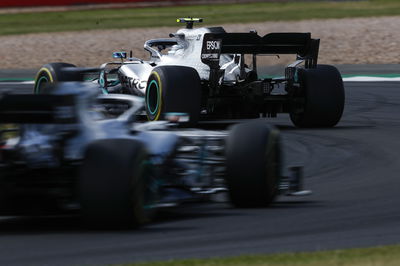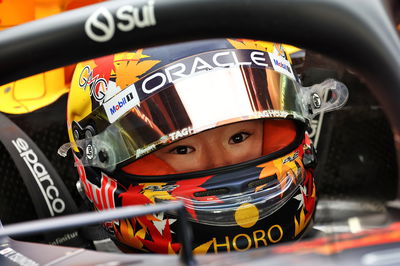Mercedes wary of ‘unconscious favouritism’ for its F1 drivers
Mercedes Formula 1 boss Toto Wolff is wary about “unconsciously” favouring either of its drivers by carrying out different strategies at the British Grand Prix.
A one-stop strategy, combined with a fortunately-timed Safety Car, helped Lewis Hamilton beat polesitter and teammate Valtteri Bottas - who was two-stopping - to score a record sixth British GP win at Silverstone.
Bottas admitted after the race that he thought a one-stop was “out of the question” and said Mercedes had made a mistake by not executing the same strategy for both cars.

Mercedes Formula 1 boss Toto Wolff is wary about “unconsciously” favouring either of its drivers by carrying out different strategies at the British Grand Prix.
A one-stop strategy, combined with a fortunately-timed Safety Car, helped Lewis Hamilton beat polesitter and teammate Valtteri Bottas - who was two-stopping - to score a record sixth British GP win at Silverstone.
Bottas admitted after the race that he thought a one-stop was “out of the question” and said Mercedes had made a mistake by not executing the same strategy for both cars.
Mercedes has tended to run both of its drivers on the same strategy in the past to avoid a scenario that favours one driver over the other. Wolff explained the thinking behind the decision to mix up its strategic options following the race.
“The discussion we had in the morning of putting them on the same tyres and the same strategy basically Turn 1 or Lap 1 would lock in the result,” Wolff said.
“We felt, picking up on their suggestions, it would provide and interesting race. It still overlapped on many instances and we knew they would be racing each other but maybe on different strategies.
“I think in hindsight the argument has value, I think we need to look at how we actually do it, are we favouring somebody unconsciously, which we wouldn’t want to do.
“That has created more experience and more data for us to judge whether that is something we do in the future.”












